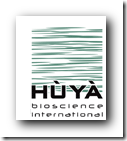This was somewhat of a first for the US FDA to trust Chinese data. Shenzhen Chipscreen Bio sciences Ltd. was also awarded the Most Valued Partner for Roche R&D Center.
Oncology drugs are one of their primary focuses, with individuals trained here in the US and returning to China to create their own biotech companies and working in partnership with HUYA here. Perhaps the shape of R and D for the future as costs continue to escalate here? BD
November 13, 2008 | China plus the drug industry plus newspaper headlines has seldom equaled positive reading. Yet where Pharma is  concerned, two things can’t be denied. First, China has certainly become a key player in global biotech, especially over the last five years, with its economy loosening up and the government allowing capitalist-type ventures in parts of the country. As well, those in Pharma constantly lament the lack of new, high-quality compounds for drug development – a process that isn’t getting any less expensive, while the pool of sources is drying up.
concerned, two things can’t be denied. First, China has certainly become a key player in global biotech, especially over the last five years, with its economy loosening up and the government allowing capitalist-type ventures in parts of the country. As well, those in Pharma constantly lament the lack of new, high-quality compounds for drug development – a process that isn’t getting any less expensive, while the pool of sources is drying up.
Perhaps it needs to be better recognized that drug manufacturing, and the brainpower behind drug discovery, are really quite distinct. If married in the right way(s) between China and a Pharma powerhouse like the US, the combination could turn out pretty appealing. Such was the observation of Mireille Gingras, president and CEO of San Diego-based HUYA Bioscience International, who noted that significant numbers of Chinese individuals, after being educated and trained in top US institutions, were returning home to start their own biotech businesses.
HUYA then approached Chipscreen for licensing rights to the compound, helping the Chinese group to write their Phase I protocol. At the same time, they initiated preclinical development studies in the US. Not surprisingly, Newman and the HUYA team were “blown away” when the FDA responded both quickly and positively to their preclinical/Phase I plans. 
HUYA also lauds the US FDA’s move to set up an office in Beijing by year’s end, to help alleviate concerns about Chinese drugs. “It’s a recognition that major things are happening in China with respect to the pharmaceutical industry,” Newman says. And since HUYA is currently the leader in US/China pharmaceutical co-development, “we feel we’re positioned to play a role in helping to enhance and generate Western standards [in China].”
http://www.pharmaweek.com/Business_and_Markets/feature_11_13.asp



China has certainly become a key player in global biotech,
ReplyDeleteIt’s true that we have pointed field of which Chinese people can feel proud, but as to apply the high-tech to people’ life, or to make the most of the them, as far as I see ,we still have a long way to go. And this partly results from the way Chinese culture.
acts